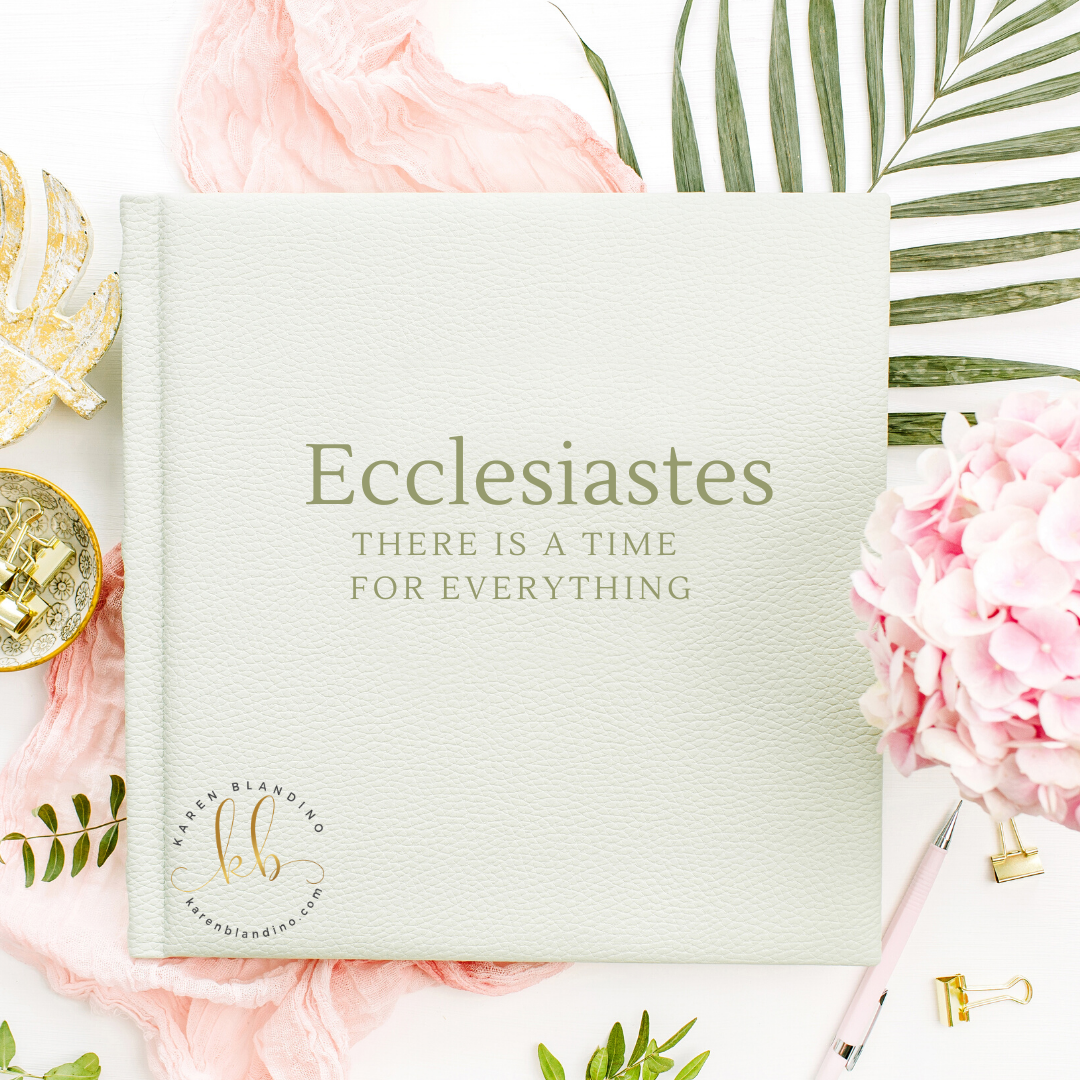
In the Ecclesiastes poem, A Time for Everything, the poet comes to grips with the concerns of his, and our, human mortality. How our lives are made up of joy and sorrow, the living and dying – this is life in the human sphere.
We find in this poem that our lives are under the influence of not only the hand of God, but also moments in time. God is sovereign in our lives, but because we are currently constricted to earthly bodies, we are also constricted to living in a world that is beautiful, time sensitive, and broken.
As I was reading this poem – line by line – I could see where a verse may be relatable to specific seasons in our lives. The more I studied the more I realized, not just one verse is applicable, but the whole passage is applicable during the Coronavirus pandemic of 2020.
“A time to be born and a time to die; a time to plant and a time to pluck up what is planted.” The poet does not mention how a person dies or why they are born, but simply says we all have a time to be born and to die. Bodies are strong and fragile. When we see a baby born, we are amazed by how strong a baby and its mother are to survive such trauma to the body. In the flip of the coin, we are also confounded by how fragile we are to a small virus.
“A time to kill, and a time to heal; a time to break down, and a time to build up.” Although the virus has killed many, we are also seeing the heroic sacrifice of our medical community working so hard to give life back to those who are sick. As we witness lives being plucked up, people are coming together to build up each other. It is beautiful to see the acts of honor demonstrated all over communities, hospitals, and cities. One of my favorites is each time a person has recovered from COVID-19, and they are released from the hospital, the song, “Here Comes the Sun” by the Beatles is played in their honor. Yes, winter is waning and spring is coming!
“A time to weep, and a time to laugh; a time to mourn, and a time to dance.” The emotional distance between weeping and laughing is wide and deep. While many are on their mourning bench, there are those who are lifting them up in the dance of joy. Joy and laughter are the healing balm to our grief and sorrow – they are the bridge between weeping and laughing. When we can sit with those in grief, we can also dance with those in love across that bridge together.
“A time to cast away stones, and a time to gather stones together; a time to embrace, and a time to refrain from embracing.” Due to social distancing, we cannot physically embrace each other; however, many people have taken this time to “cast away stones.” In other words, they have spent time reflecting on estranged and long lost relationships. They are removing the “stones” in the soil of their life that may be preventing God’s word from taking root.
“A time to seek, and a time to lose; a time to keep, and a time to cast away.” During this time, many of us have realized nothing is really ours forever. People are literally cleaning out closets, removing excess, and minimizing their lives…because we are realizing what is truly important. With our schedules greatly reduced, we have come to realize that we have lived in a world of “too much” stuff and busyness, when what we really needed was “too much” of each other.
“A time to tear, and a time to sew; a time to keep silence, and a time to speak.” Professional and novice seamstresses, moved by their empathy, are tearing or cutting fabric to sew masks to help slow down the spread of the Coronavirus and keep people safe. We have seen companies who specialized in one area completely convert their business to make personal protection equipment (PPE) for our medical community. These people and companies have chosen to “speak” with wisdom during this difficult time.
“A time to love, and a time to hate; a time for war, and a time for peace.” Many cities have seen a drop in crime, and some countries have declared a cease-fire. During the COVID-19 crisis, we are witnessing the scientific communities from different countries working together to come up with a vaccine or medication so people can be healed.
You may be thinking, “This is too much to take in,” or “Why do we have to experience this all at once?” Let me encourage you with this: the Hebrew world shalom (peace) is not just the absence of difficulty, but it’s a well-being of peace despite circumstances. My prayer is that during this time of quarantine and reflection, we will look to the One who is called “Prince of Peace.” As we embrace a wholeness of peace, shalom, may it not just be a temporary solution to this moment in time, but an enduring hallmark of our lives – a time for enduring peace!


